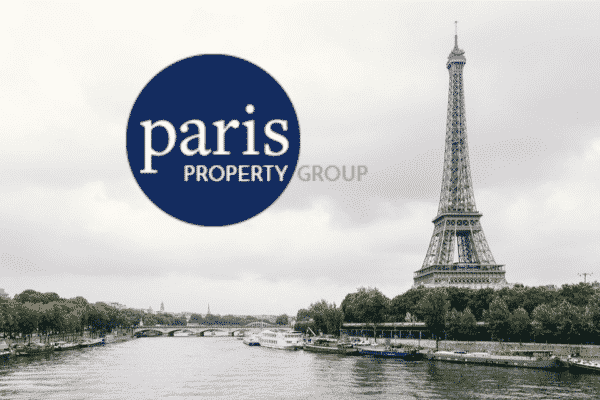Expert Insight, Breaking News, and Insider Stories on Real Estate in Paris

Want to live in Paris? Here’s how
How to live in a foreign country
People always ask, “How did you manage to live in Paris?” I’ve been meaning to write about it for years, but it seems especially timely, as recent crises are causing many people to become serious about pursuing all those dreams that keep getting put off. Moving to a foreign country is challenging and rewarding, exciting and frustrating. It can seem daunting when looked at as a whole, but breaking it down into steps makes it manageable.
Living legally in a foreign country
The first thing you’ll need to decide is how long you want to stay. You can generally stay for 3 months at a time and up to 6 months total, within one year, with no visa. If you want to stay longer, you’ll need to apply for a long stay visa. You’ll have to apply before you leave your home country, and receive your visa before you go. Check the Embassy Consulate of the country where you’d like to live.
For France, you’ll need:
- proof that you have specific international health insurance that covers repatriating you to your country of origin in the case of an emergency.
- enough money in a bank account to support yourself without working locally.
- 6 months to a year of bank statements proving sufficient funds and showing no suspicious activity.
- a letter of good standing with your bank.
- proof of a place to live.
- tax returns from your home country.
The list of these documents is found on the consulate website. If you have a portable job, generally it isn’t a good idea to publicize that, because working in a foreign country usually violates visa conditions. Working papers in a foreign country are hard to get, but if you have the energy or funds to hire an immigration attorney it might be worth the effort, especially if you plan to immigrate.
Find a place to live
Finding a place to live can be a chicken and egg situation. You need to have a place to live in order to apply for a visa, but it’s tough to rent an apartment without residency because landlords fear you might leave the country without paying. One solution is to rent a furnished place for a few months to a year (or longer). Those properties are designed for shorter term stays and so they are less worried about your long term commitment. Another option is to set up a caution bancaire with your French bank, where you essentially put a year’s worth of rent into an escrow account to prove to landlords that you’re a good risk.
Your options will generally be to rent short term furnished, long term furnished, long term unfurnished, or to buy your own place. There are agencies online to help with each of these options. It is generally easier to rent shorter term furnished places. There is a lot of demand for unfurnished long term rentals since about half of all French citizens rent and do not own their own place.
If you’d like to own your own place, Paris Property Group would be pleased to help you. There are significant language, cultural, legal and market structure challenges in the Paris real estate market that make it imperative to have a trusted advisor representing your interests and connecting you with the right resources along the way. We’ve helped hundreds of clients to achieve their dreams in Paris.
Getting integrated
It may seem counterintuitive, but you’ll find it is often easier to make friends in an international setting than in your home country. Living abroad appeals to outgoing, adventurous types who are welcoming and open to new experiences and people. They are also generally new to the area, and without family, or long time friends. The common denominator of language and love of travel and adventure means you have a ready pool of like-minded friends.
Join a Facebook group for expat locals, an international association, a Meet-Up group, etc. Take a language class. You’ll soon find your tribe.
Staying longer term
Obtaining residency or citizenship in a foreign country requires that you provide similar information as for a long-stay visa, but in France they require more documentation over a longer period of time and more in-depth. In addition to the items above, they also require:
- 5 years of banking statements vs. 6 months or a year.
- a letter of motivation and showing integration into France.
- proof that you’ve been filing taxes in France for at least 4 years in a row, and living in France at least 5 years (save copies of all those annual carte de sejours!).
- certification of at least A1 level oral and written French.
Pro tip: In France, when you’re assembling your dossier, be sure to keep a second file with copies of redundant proofs of each item. They require bank statements, but you should also have a letter of good standing from your bank in a separate file. They require proof of residency, so you might have three months of “quittance” (proof of receipt of rent payments from your landlord), but also have in your extra file your EDF (electric) bill, a copy of your rental agreement, etc. Playing “Gotcha” is one of the joys of government bureaucrats. They once asked for proof of my daughter attending school, which was not on any list at all, so I regularly brought a large folder with all documents in it. It is easier to go to the copy machine in the lobby, than it is to go home and try again at a later date.
Some countries advertise that if you buy property or invest in a business, you can have an easier pathway to citizenship, but in my experience it isn’t at all necessary. It’s easy enough to get a long stay visa with or without that step. The key is to be self-employed or self-funded, so that you don’t appear to impose any burden on the State.
Contact Paris Property Group to learn more about buying or selling property in Paris.













